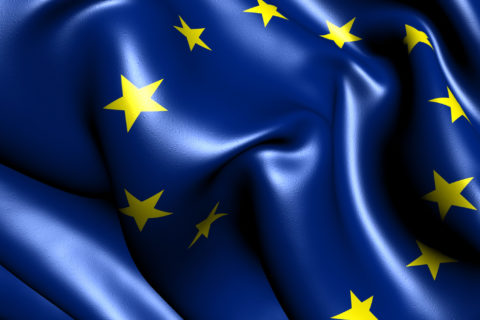By Finn Raben
This morning’s news that the people of Britain had voted to leave the EU, has ensured that June 23rd will be an historic day in the annals of the EU…whether it will be regarded as a “good” day or a “bad” day for either Britain or the EU, will only become apparent during the next two years.
That said, I suspect that the euphoria expressed by the winning side will soon dissipate as the true complexity of dealing with the outcome becomes clearer.
There was a very interesting article published in The Guardian newspaper yesterday, entitled : ‘The UK is now two nations, staring across a political chasm’ – written by John Harris. This article took the position that the story of the referendum was the restive mood of millions in the UK, and that the (in Harris’ words) “disgraceful tricks” of political messaging were not sufficiently counterbalanced by responsible broadcast journalism, leading to emotive themes becoming the predominant communication tactic.
Now that the result is known, the chasm is probably a lot wider, and a lot more complex, than a simple In / Out decision might have inferred….
- Almost half of Britain does not want to leave the EU
– the split of 52% – 48% is by no means an overwhelming majority - England and Wales voted to Leave the EU
- Scotland and Northern Ireland voted to remain in the EU…
– Will this require a second independence referendum in Scotland ?
– Will the travel, customs and security border need to be reinstated between the 26 counties of the Republic and the 6 counties of the North of Ireland?
– Does this signify the beginning of the end for the Union of Home Nations? - London voted to remain, much of the North voted to leave…
– is there a capital city syndrome becoming apparent ? - Most of the House of Commons supported a Remain position;
– Is the current government now out of sync with the electorate?
– Is there a need for a general election? - The young (under 50) voted to remain in the EU, the older generation to leave….
– Most young people (all over the EU and the world) are pro Europe, so should voters have stood back and remind themselves that the future is about their children and grandchildren, and have trusted in the next generations instincts and vote in a way that best suited their future desires?
Looking externally…..
- What will happen to British expatriates, living and working in the EU, and their EU counterparts, living and working in the UK ?
- The Brexit vote will put immediate stress on Transatlantic political unity (amid growing tensions with Russia), and will complicate U.S. trade ties, particularly on issues such as TTIP and the Privacy Shield.
- If we assume that the Brexit vote was largely a referendum on elites and immigration, these are the same themes that Republican nominee Donald Trump has put at the center of his bid for the White House –will he seize on these results as a vindication of his position and campaign?
- Right-wing conservatives in the Netherlands and in France are using the result to call for referenda in each of the member states; Russia will be delighted at any sign of weakness in the EU structure, and at any evidence of transatlantic disunity, putting pressure on the EU to “resolve” the situation quickly
The essence of a referendum is that people speak – not the politicians. The British people have now spoken, and the resulting task facing Britain’s government is a daunting one; effect the withdrawal, whilst managing/repairing the rifts that the voting results above have clearly highlighted.
However, an equally daunting challenge now also exists for the European Union; if Britain has reached a point where dissatisfaction with its EU membership has hit breaking point, how long will it be until the next country seeks a similar referendum? The danger is to assume that the EU is “ok”, whereas it is far from it. Reform will be needed on both sides of the European divide, to ensure both entities are “fit for purpose” for the coming years. If this is not recognised, if the political classes do not notice that people are discontent and that they feel they are not being listened to, then politicians play into the hands of populists who leverage emotions and prejudices…so listen, or beware.
Finn Raben is ESOMAR Director General. @Finn01 #esomar



1 comment
Finn, a fine summary of the results and the implications.
One thing that you refer to is the oft-repeated phrase that this was a vote against the presumptions of “the elite” (similar is said of Trump’s followers). But the term “elite” is never defined. Does it comprise just the party leaders, government officials, the “establishment” broadly defined? Often, it seems to be used to refer to the better educated, more sophisticated population vs. everyone else, who are then dubbed “the people.”
And as you say, the challenge to the future of the EU is as great, if not greater, than that to the UK. In a lighter vein, it could be summarized in a nursery rhyme:
“A Brexit, a Grexit, who’s next to seek the exit?
I put my money on EU, but no one now can fix it.”